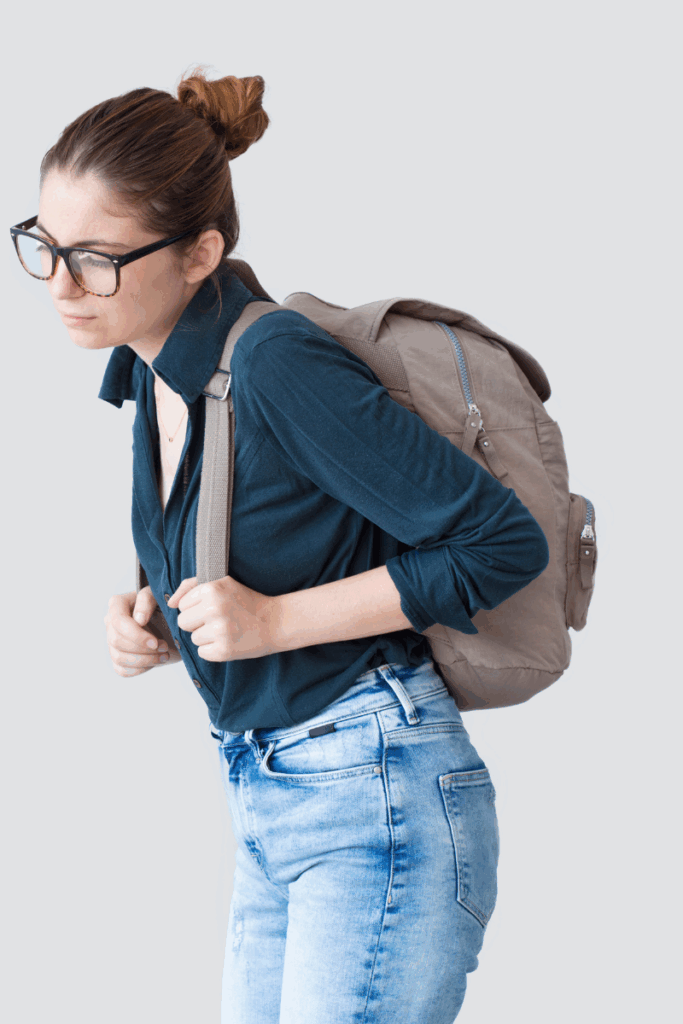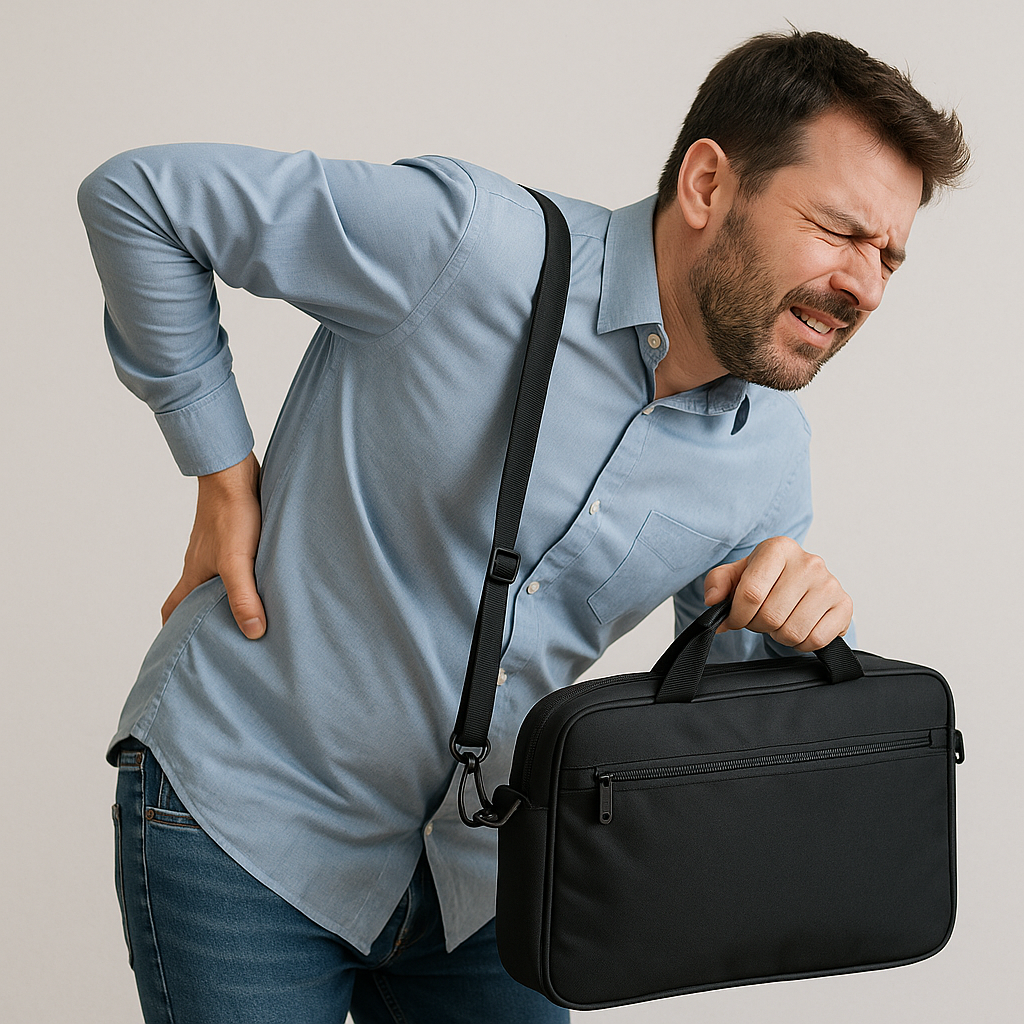How Carrying a Heavy Bag Affects Your Spine
Posted by: Reform Physical Therapy in Family health, Injury Prevention, Physical Therapy Tips, Posture & Ergonomics on September 19, 2025


Many people don’t think twice about tossing a purse, tote, or backpack over their shoulder before heading out the door. But when bags are too heavy or carried the wrong way, they can have a big impact on the spine. At Reform PT, we see patients every year with back, neck, and shoulder pain that can be traced back to something as simple as a daily bag. Understanding how load affects the body can help prevent these problems before they turn into lasting pain.
The Strain of a Heavy Bag
The spine is designed to carry weight evenly. When a heavy bag is carried on one shoulder, it throws off this balance. The muscles on one side of the body work harder to support the load, while the other side may become weaker or overstretched. Over time, this imbalance can lead to muscle fatigue, tightness, and even changes in posture.
The heavier the bag, the more the body compensates. People may lean to one side, hike up a shoulder, or shift their hips to stay balanced. These small adjustments may not seem like a big deal in the moment, but when repeated every day, they place stress on the spine and surrounding joints. This is why many people who carry oversized purses or heavy work bags notice pain in their shoulders, neck, or lower back.


Backpacks and School Bags
Backpacks are often thought to be safer because they distribute weight across both shoulders. However, they can also cause problems if they are overloaded or worn incorrectly. When backpacks are too heavy, children and adults alike may lean forward, which strains the lower back. Straps that are too loose can cause the bag to hang low, pulling the spine out of alignment. Even a well-designed backpack can cause trouble if it’s loaded with more weight than the body can handle.
The Long-Term Impact
Carrying heavy or uneven loads doesn’t just cause soreness. Over time, it can contribute to chronic back pain, muscle imbalances, and changes in posture. Students who regularly carry overloaded backpacks are at risk for developing habits that follow them into adulthood. Adults who carry large totes or laptop bags every day often notice tight shoulders, headaches, or nagging lower back pain.
How to Protect Your Spine
The easiest way to reduce strain is to lighten the load. Bags should carry only what is necessary, and children’s backpacks should weigh no more than ten to fifteen percent of their body weight. Wearing both straps of a backpack, keeping straps snug, and choosing bags with padded support all help reduce stress on the body. For purses or totes, switching sides regularly can prevent one shoulder from taking all the weight.
It’s also important to strengthen the body so it can handle daily tasks with less strain. Core exercises, posture training, and stretches for the shoulders and hips improve alignment and reduce pain.


How Physical Therapy Can Help
At Reform PT, we help patients dealing with pain from daily habits like carrying heavy bags. Our therapists assess posture, identify areas of weakness, and design simple strategies to improve comfort. We also teach strengthening and stretching exercises that support the spine and reduce the risk of future problems. For students, we can provide guidance on safe backpack use to protect growing bodies.
